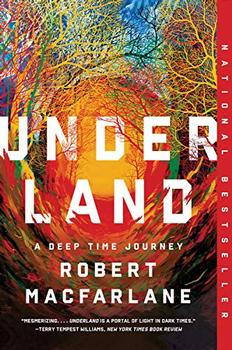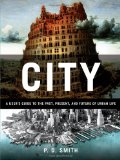Summary | Excerpt | Reviews | Beyond the book | Read-Alikes | Genres & Themes | Author Bio

The Exploding Business of Travel and Tourism
by Elizabeth BeckerKendall Jenkin's response to the cruise she had just taken was telling: "I'm just so blessed to be home. I don't want to hear the word 'cruise' ever again." Jenkin was one of many passengers on a Carnival Cruise in February 2013 that lost power and after four harrowing days in the open seas, had to be tugged back to port. Cruise lines and their extremely questionable practices come under the microscope in Elizabeth Becker's close look at the tourism industry, Overbooked: The Exploding Business of Travel and Tourism. These giant cruise companies, Becker says, don't have to follow the same environmental and labor laws for businesses that are based on land. What's worse, major cruise lines are headquartered in countries like Liberia to avoid tax hurdles and other regulatory restrictions. The lure of a cruise for many middle-class Americans is extremely strong - especially since most are priced quite affordably. As Becker shows in her book though, their true costs are much more than the ticket price shows.
As more people around the world are becoming part of the middle-class, the numbers of trips taken - by water, air or land - has correspondingly increased. "Pollution and environmental degradation are the serious downside of those crowds of tourists and travelers who are making 1 billion discrete foreign trips every year and possibly three times that many trips within their own countries," Becker writes in her exposé of the travel industry.
In some chapters, Overbooked explores the origins and history of tourism and the role that it plays in national economies. In others, we visit countries that are doing tourism right and wrong. The book's structure is a bit haphazard and seems to be dictated more by Becker's travels than any linear narrative. Becker shows how tourism dollars might bring in money but that a lack of central planning for standards of any kind is doing grave damage to the very spots that are the biggest draw. "Governments are like the head of the octopus, controlling in obvious and subtle ways just about everything that affects travel and tourism. Governments can preserve cultural sites or allow them to be destroyed; they can set wilderness areas or issue permits to build resorts along a deserted beach..." Becker writes. She makes her case with examples. France, for instance, has recognized that tourism is a vital industry that stimulates the economy and creates a large number of jobs. The good news is that France also knows that tourists are attracted to the country because of characteristics that make it French. So it expends a lot of effort in retaining its "Frenchiness" (to borrow a phrase from Stephen Colbert's lexicon). For example, the city of Bordeaux, Becker writes, used to be a mess despite the popularity of its vineyards. But the mayor expended a lot of money in cleaning old buildings and improving city infrastructure to the point where the revitalized city is a magnet for tourists.
On the other hand there is Cambodia. The rich and glorious cultural heritage as embodied by the Angkor Wat and other Buddhist temples is being exploited so much and with such unplanned haste, Becker says, that the sites are being completely ruined. Equally worrisome, the tourism dollars are not reaching down to all levels of the population and creating meaningful jobs. "Tourism brings in $2 billion each year but it enriches Cambodia's elite rather than helping the underprivileged," Becker points out. Over-pumping of water has lead to a dramatic drop in water tables with the result that the Cambodian temples (the very draw for tourists) have started sinking into the ground.
While the problems that Becker brings to our attention are legitimate, her work suffers from an ethnocentric view of the situation. For example, Becker laments that millions of people travel from Japan and China and other countries and don't pay the cities they visit, the time and attention they deserve. In the book, a Venetian complains about Japanese tourists: "They spend fifty-five minutes on culture, then one hour buying souvenirs - 'Venetian' masks made in China - then back to their buses."
"How could they come all the way to Venice and spend only one hour seeing the glories of the world's great cities?" Becker asks. While one can certainly sympathize with her sentiments, she fails to recognize that people around the world might not share her idea of a good vacation. How many of us have gone on family vacations when each person had a differing idea of what to do each day? Aunt Suzie wants to go to the spa while Uncle John might want to hit the golf links. Whose idea of an ideal day is better? Becker also forgets that vacations are expensive. Is it wrong that these Japanese tourists might want to check off more than one sight in a day, that they do not have the luxury of both time and money to spend three days in just Venice alone?
The solutions Becker offers are limited – probably because the problem is still nascent. One chapter explores the advantages of sustainable or eco-tourism with a focus on Costa Rica. Becker does seem to be aware that the trip might not be for all. "That night we watched the sole movie shown during our trip: David McCullough narrating a PBS special based on his book about the building of the Panama Canal. I felt like I was part of a New Yorker cartoon about politically correct travel." The other major hurdle? Money. Not many can afford the $4,800/person price tag for such an expedition even if Becker says the experience is worth the money. Regular tourism is voyeuristic and exploitative, Becker implies, with poor countries earning up to five percent of their gross national product "selling themselves to foreign tourists who marvel at their exotic customs, buy suitcases of souvenirs and take innumerable photographs of stunning sites." But eco-tourism doesn't necessarily solve these problems either, does it?
Despite these drawbacks, Overbooked emerges as a vital and compelling book that shines light on an important global issue. Even if it might not offer many solutions, it at least asks the questions worth asking. "Amplify these remarks into a broad public debate, and soon communities, businesses and governments can sort out what they want – and don't want – from tourism and travel," Becker writes in the afterword. "Without a debate, nothing changes." Fair enough.
![]() This review was originally published in The BookBrowse Review in May 2013, and has been updated for the
March 2016 edition.
Click here to go to this issue.
This review was originally published in The BookBrowse Review in May 2013, and has been updated for the
March 2016 edition.
Click here to go to this issue.

If you liked Overbooked, try these:

by Robert Macfarlane
Published 2020
From the best-selling, award-winning author of Landmarks and The Old Ways, a haunting voyage into the planet's past and future.

by P.D. Smith
Published 2012
With erudite prose and carefully chosen illustrations, this unique work of metatourism explores what cities are and how they work. It covers history, customs and language, districts, transport, money, work, shops and markets, and tourist sites, creating a fantastically detailed portrait of the city through history and into the future.
People who bite the hand that feeds them usually lick the boot that kicks them
Click Here to find out who said this, as well as discovering other famous literary quotes!
Your guide toexceptional books
BookBrowse seeks out and recommends the best in contemporary fiction and nonfiction—books that not only engage and entertain but also deepen our understanding of ourselves and the world around us.